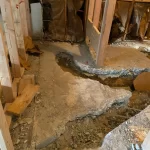Funding Affordable Housing is a critical need in cities, towns, and counties nationwide. Addressing this need requires a comprehensive approach encompassing various funding sources and strategies to ensure the development and preservation of affordable housing. This blog post explores the myriad policies local governments can adopt to generate funds for affordable housing initiatives.
Revenue-Generating Local Policies
- Housing Trust Funds: Housing trust funds are flexible funding sources that cities, counties, or states can use to support various affordable housing activities, including housing grants for low-income. Revenue for these funds often comes from dedicated sources earmarked explicitly for affordable housing.
- Dedicated Revenue Sources: This approach ensures a continuous stream of funding for affordable housing projects, reducing dependency on the fluctuating annual budgets determined by legislative bodies.
- Linkage Fees and Impact Fees: Assessed on new developments, these fees help address the housing needs that arise from economic growth, ensuring that developers contribute to the community’s housing stock.
- Demolition Taxes and Condominium Conversion Fees: These fees are levied on property owners, and they can mitigate the loss of affordable homes when properties are demolished or converted.
- General Obligation Bonds: General Obligation Bonds are government-issued bonds that fund affordable housing projects and are repaid through local or state general funds or dedicated taxes.
- Tax Increment Financing (TIF) (also known as tax increment financing or TIF): TIF uses the incremental increase in property tax revenue from designated areas to fund housing and other community improvements.
- Transfers of Development Rights: This voluntary program allows property owners to sell unused development rights to another property, generating funds to maintain affordable housing quality and affordability.
- Employer-Assisted Housing Programs: These programs expand housing funds as employers offer assistance to their workers, enhancing the availability of affordable housing.
- Private Activity Bonds and LIHTCs (LIHTC 4% ): Utilizing multifamily private activity bonds to access 4% Low-Income Housing Tax Credits provides essential equity for affordable housing developments.
- 9% LIHTC: The LIHTC 9% Low-Income Housing Tax Credit offers higher tax credits compared to the 4% LIHTC, making it particularly attractive for developers seeking additional financial support for their projects.
- State Tax Credits: Similar to federal credits, state tax credits incentivize investments in affordable housing by offering tax relief to investors.
- Activation of Housing Finance Agency Reserves: These reserves can provide crucial subsidies for affordable housing projects, bridging the gap in funding needs.
The Importance of Local and State Funding
While federal support remains vital, local resources are indispensable in making affordable housing projects viable. Local funding often serves as the critical last piece of financing, closing the gap between available funds and total project costs. Moreover, state governments can establish their funding streams and administer federal funds, playing a pivotal role, especially in regions that do not directly receive federal housing funds.
Broader Policy Integration
Cities and towns should consider other strategies to support affordable housing bonds without direct funding in addition to revenue-generating policies. Policies such as density bonuses, inclusionary zoning, tax reductions, and strategies involving the capital magnet fund, tax increment reinvestment zone, and private bonds can encourage developers to include affordable units in their projects.
Conclusion
Funding Affordable Housing requires a multifaceted approach, integrating various funding sources and policy strategies. Localities can effectively address the complex challenge of housing affordability by adopting a broad spectrum of tools and collaborating across policy sectors. This strategy not only satisfies current housing demands but also supports long-term sustainability and health of communities. Get in touch with us right now to learn more about how you may help projects for affordable homes in your neighborhood.










